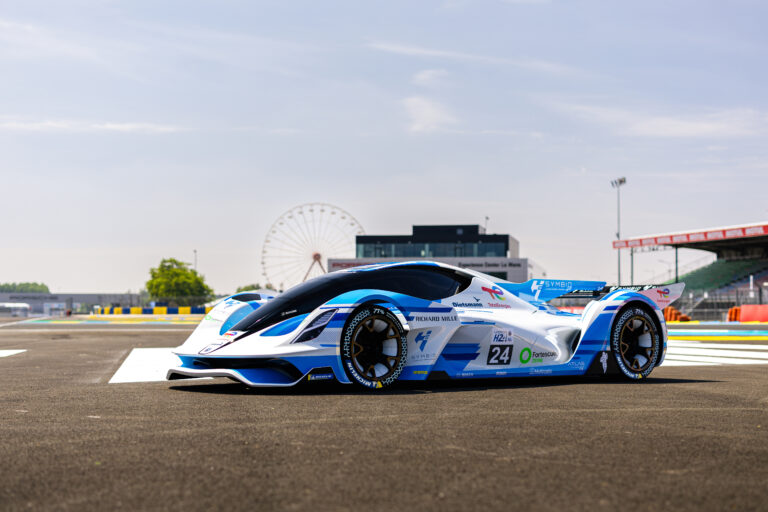The world of motorsport is changing, with environmental awareness, emissions and climate protection becoming increasingly important in vehicle engineering. To address these evolving concerns, Bosch Motorsport has unveiled the L-HSCU, a liquid hydrogen storage control unit and safety concept that it will demonstrate at the Le Mans 24 Hours event next month.
Bosch says the concept can be used to control and monitor the entire storage chain in a vehicle, from refueling and storage in the tanks to the transfer to the fuel cell or internal-combustion engine. Sensors supply the control unit with data on parameters such as the pressure and temperature in the tank and fuel lines. Any anomalies in the hydrogen system trigger the automatic activation of protective circuits – for example, fans ensure effective dilution of the gas concentration in the event of a hydrogen leak. The control unit also communicates with the refueling system both within and outside the vehicle to ensure a safe and efficient refueling process.
The use of liquid hydrogen is currently being explored as a fuel for the motorsport segment. To liquefy the hydrogen, it is cooled to approximately -253°C and filled into the insulated, low-temperature vehicle tanks with a pressure of up to around 5 bar. In this form, the hydrogen has a higher volumetric density than with alternative gaseous storage, meaning that the tanks take up significantly less space in the race car. Hydrogen storage places high demands on fuel management as safety.
The first use of the L-HSCU liquid hydrogen storage control unit was in the fuel-cell-powered H24EVO demo vehicle created as part of the MissionH24 program.
Ingo Mauel, vice president of Bosch Motorsport, said, “Endurance motorsport offers a perfect testing ground for new technologies since the components employed must be extremely robust and durable. As an official partner with H24Project in Mission24H’s program, we can contribute both our extensive motorsport experience and our vast hydrogen expertise to the development of the H24Evo and thereby demonstrate that hydrogen is a viable alternative for the world of motorsport.”
The demonstrator will be on show again in the H2 Village at the Le Mans 24 Hours event and will participate in the exclusive demo laps for hydrogen-powered race cars, which are scheduled to take place on Thursday, June 12, and Saturday, June 14, 2025.
The hydrogen technology installed in Bosch Engineering’s Ligier JS2 RH2 test vehicle will be further developed to meet the specific requirements of high-performance sports cars for the road. In addition to the tried-and-tested safety concept, an emissions concept for road applications is also in development.
In related news, Porsche Engineering recently developed the TABASKO construction method, in which polypropylene components are reinforced with strategically placed carbon fiber tapes. This helps reduce the use of plastic materials and increase the use of post-consumer recycled material, and supports lightweighting without sacrificing rigidity. TABASKO takes its name from the German for ‘tape-based carbon-fiber lightweight construction’.. Click here to read the full story



